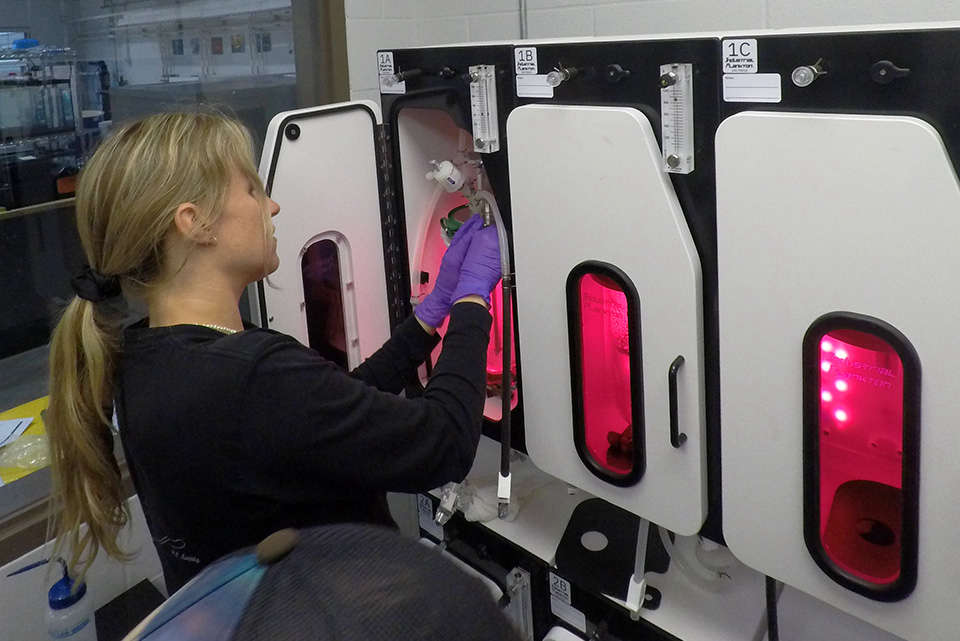
A new piece of technology for North Island College seaweed researchers will help their work to support a burgeoning industry.
NIC’s Centre for Applied Research, Technology and Innovation (CARTI) has received its new seaweed bioreactor, which provides a stable environment for producing kelp cultures and gives users a lot more time to collect and nurture samples.
In a release, NIC explains that typically, opportunities to collect “sori,” or spore patches for kelp are limited to certain times of the year. Usually, it is about a two- or three-month window.
The bioreactors are easy to maintain, to provide consistency and control over factors like pH levels, light or carbon dioxide, and they provide an environment with an extremely minimal risk for contamination.
The investment was funded by the BC Knowledge Development Fund as well as the Canada Foundation for Innovation, each contributing $200,000.
The equipment provides the CARTI team with more control and certainty when it comes to having a reliable seed supply.
“For seaweed, in particular, you need a stable supply of seeds,” said Robert Roulston, founder and CEO for Industrial Plankton (IP), which produces the bioreactor.
Based in Victoria, the company supports clients in 35 countries, including over half of the North American-based shellfish hatcheries.
While most of the units go to commercial clients, they can be a valuable tool for researchers like CARTI.
IP says it expects the bioreactor could be used for future CARTI projects such as focusing on popular kelp species in the province with an eye toward coming up with best practices for the industry.
To learn more, visit NIC.

 First Nation Leadership Council Calls For Conservatives To Pull North Island-Powell River Candidate
First Nation Leadership Council Calls For Conservatives To Pull North Island-Powell River Candidate
 North Island-Powell River All Candidates Debate At Sunday At Tidemark Theatre
North Island-Powell River All Candidates Debate At Sunday At Tidemark Theatre
 Cumberland Residents Are Encouraged To Report Incidents To The RCMP
Cumberland Residents Are Encouraged To Report Incidents To The RCMP
 Training Exercise Today At 19 Wing Comox And Seal Bay Nature Park Area
Training Exercise Today At 19 Wing Comox And Seal Bay Nature Park Area
 Campbell River Extends Downtown Parking Time Limits
Campbell River Extends Downtown Parking Time Limits
